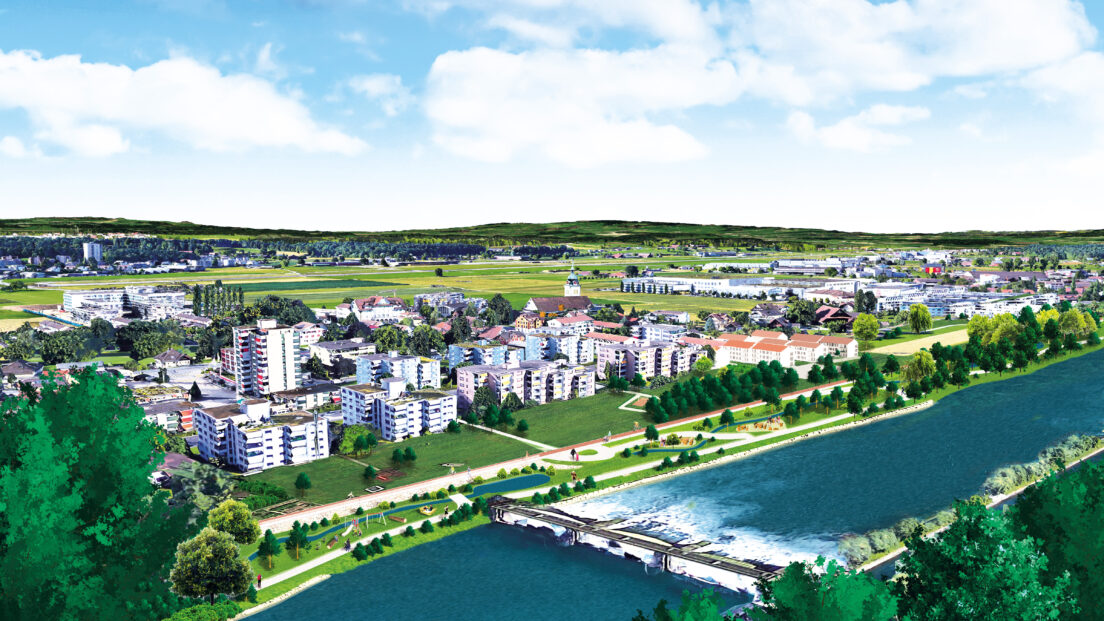Reuss project to protect against flooding and secure habitats

The Reuss Valley is one of the most important living and working areas in the Canton of Lucerne. However, the Reuss currently poses a considerable flood risk. The large-scale project "Flood protection and renaturation of the Reuss" aims to change this.
Over 135,000 people live and work in the Reuss Valley. The region will continue to develop strongly, not least due to the booming working and living area of Lucerne North.
Floods cause major damage
However, the Reuss currently poses a considerable flood risk. The current dams are over 150 years old – there is a risk that they will no longer withstand heavy floods. The floods of 2005 alone caused damage to buildings and public infrastructure along the Reuss and Kleine Emme rivers to the tune of 345 million Swiss francs.
With the project “Flood protection and renaturation of the Reuss”, the Canton of Lucerne aims to coordinate flood protection and renaturation measures and generate multiple benefits. It is intended to protect people, animals, infrastructures and goods, to ecologically enhance the Reuss and its watercourse and to maintain and increase the quality of life of the population.
Widening the Reuss protects against flooding
The planned Reuss project provides for a widening of the watercourse at suitable points. This will lower the water level and thus provide flood protection. Higher dams would offer less protection than a wider Reuss, and a deeper Reuss would endanger the groundwater in the Reuss valley and thus the drinking water in Canton Lucerne. Where settlements and infrastructures limit the space needed for widening, existing dams are raised and shallow new dams are created in isolated cases.
The Reuss project is divided into five geographical sections. Specific protection and ecological measures are to be implemented on all of them.
Construction will take around twelve years
The public launch of the project took place in autumn 2019. In June 2022, the government council approved the project, but due to appeals it is not yet legally binding. Therefore, the project will be delayed. After the legally binding project approval, the government council will apply for a special credit for the realisation of the project, which will be voted on by the population. The construction work for the project will take about twelve years.